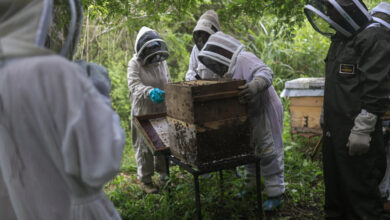Recommendations for the Sexual Health of Young Women
Education on issues of sexuality improves knowledge and promotes self-reflection among adolescents.
Education on issues of sexuality improves knowledge and understanding, builds equitable norms and values, and promotes self-reflection among adolescents, especially young women.

The Woman Post | Carolina Rodríguez Monclou
Escucha este artículo
Dr. Amanda Alvelo-Malina is a gynecologist at the MidMichigan Center for Women's Health. The OB / GYN specialist has more than 16 years of experience in the medical field. Dr. Alvelo graduated from the University of Pittsburgh School of Medicine in 2004 and has excellent experience in obstetric care and sexually transmitted diseases.
According to the expert, sexual health refers to your general health, periods, relationships, pregnancy, and sexually transmitted diseases (STDs). Start by building a trusting relationship with a primary care provider, such as a pediatrician or family doctor with whom you feel comfortable asking questions.
Work with your doctor to maintain a healthy weight and get regular preventive care, like keeping up with immunizations and screenings. It would be helpful if you also consider visiting the gynecologist from the age of 13 to 15. These early visits may or may not require a gynecological exam and generally focus on risk assessment, menstrual health, and consultation for any questions or concerns you may have.
Taking good care of yourself and having a positive, healthy body image can give you the self-esteem to make the right decisions about sex and relationships. It would be better if you were in the habit of choosing what is healthiest for you. Don't engage in risky behavior to please others or gain their acceptance.
Before your period starts, talk to a trusted adult, such as a parent, teacher, or healthcare provider to find out how your body works and what to expect both physically and emotionally during puberty.
Also read: Coaching and its Contribution to Female Empowerment
If you have problems with your periods, such as heavy or irregular bleeding or cramps, talk to your doctor. It may seem awkward at first, but learning to talk openly about your body and your emotions with a trusted adult can help you get accurate information about sex. It's very important to refrain from turning to unreliable sources like friends and the internet.
When you're ready to start dating, make sure your relationships are built on mutual respect, open and honest communication, and more than just physical attraction.
When deciding to have sex, decide when is the right time for you. Regarding this, warns Dr. Alvelo, "don't have sex just because you think everyone else is doing it, or you feel like it will make you a real woman."
If you've decided to wait, think ahead of time what you would say if someone pressured you to have sex. If a person really loves you, they will respect your choices and will not pressure you.
When it comes to preventing pregnancy, you have many more options besides the pill. Birth control pills may be the easiest to get, however other methods are more reliable because they don't depend on you remembering to take a pill every day.
Although condoms provide some protection, another way to protect yourself from sexually transmitted diseases is to prevent yourself from getting vaccinated against the human papillomavirus (HPV). Finally, if you are sexually active, it is recommended that you and your partner decide to get tested for STDs and HIV.
Also, your doctor recommends discussing these issues with a trusted adult and making a list of questions to ask your healthcare provider.




